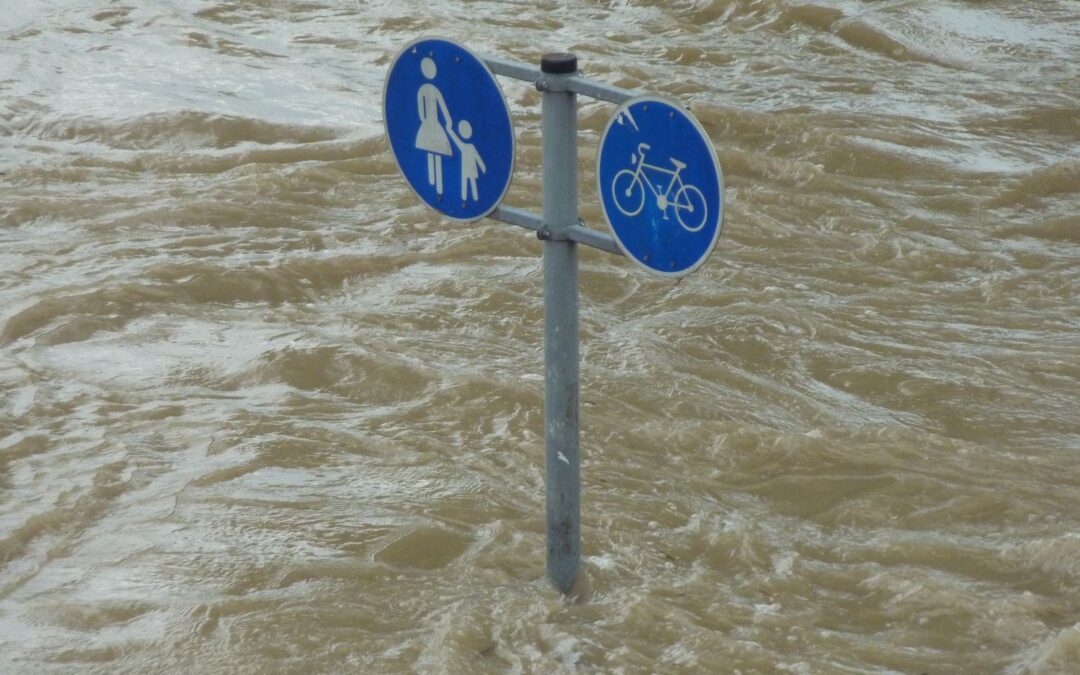As we progress through the 21st century, Europe faces a formidable challenge from climate hazards, which are projected to intensify, even under the most optimistic scenarios aligned with the Paris Agreement. As highlighted in the ‘Climate risk report’ recently published by the European Energy Agency, the potency and speed of these changes hinge on global efforts to curtail greenhouse gas emissions. Without further action, there’s a chance that by the end of the century, coastal floods could cost the EU over EUR 1 trillion in economic damage every year.
Climate change amplifies existing risks and emergencies, serving as a risk multiplier with the potential to deepen crises across various domains. Climate-related hazards, such as heatwaves, prolonged droughts and floods, interact with non-climatic risk drivers like ecosystem fragmentation, pollution, unsustainable agricultural and water management practices, and social inequalities. This toxic mix threatens Europe’s food security, public health, ecosystems, infrastructure and economy, with climate impacts capable of cascading across systems and regions, even globally. Particularly at risk are vulnerable social groups, who bear the brunt of these systemic challenges.
The interconnectedness of climate risks and the climate-sensitive systems they affect in Europe is profound. As noted above, these connections can trigger risk cascades, where a hazard in one system leads to repercussions in others. For instance, climate impacts on the economy and financial system can lead to wider policy areas being deprived of necessary financial resources. Recognizing these cascades is crucial for effective climate risk reduction, highlighting the need for adaptation policies that both prevent deterioration of basic human needs and promote resilience across human systems.
The financial system emerges as a critical player in the global warming narrative, tasked with steering the global economy towards comprehensive system-wide changes to keep global warming well under two degrees. The finance sector’s role in facilitating systemic change and directing capital towards full decarbonization cannot be overstated. Investments estimated at USD 5 trillion per year (IMF) are required for this transition, a target that, while ambitious, is attainable given current expenditure on fossil fuel industries. The urgency for financial actors to redirect flows towards renewable energy, electrification and efficiency improvements is paramount.
Despite the finance sector’s potential to influence the low-carbon transition, various barriers hinder progress, including inadequate climate risk disclosure and underdeveloped regulatory frameworks. Financial regulators and market participants must grasp the direction of travel, with financial incentives and broader finance sector reforms being essential for decarbonizing the economy. Additionally, developing countries face prohibitive capital costs, underscoring the need for financial actors to better understand and internalise climate risks.
The banking industry plays a pivotal role in climate-related financing, investment and risk management. However, it also faces challenges, such as credit risks from policies targeting emission reductions and price volatility in carbon markets. Banks have a unique opportunity to guide capital allocation towards sustainable industries, thereby influencing the transition to a low-carbon economy.
The Basel Committee on Banking Supervision (BCBS), founded in 1974 under the Bank for International Settlements (BIS), is an international forum that brings together central banks and supervisory authorities to establish global regulatory standards for banking. Its primary aim is to bolster the stability and integrity of the international banking system. Currently, the BCBS is proposing enhancements to its Pillar 3 rules, which govern public disclosures by banks. Although not legally binding, Basel rules are industry benchmarks. However, the current Pillar 3 framework lacks distinct information on how climate risk drivers could affect banks and the broader banking system. The proposed changes aim to provide both quantitative and qualitative disclosures, aiding market transparency and helping banks manage climate-related financial risks. As the consultative document states, ‘physical and transition risks can have wide-ranging impacts across sectors and geographies that result in financial risks to banks via micro- and macroeconomic transmission channels, potentially affecting the safety and soundness of banks and the stability of the broader banking system’. This would equip supervisors with insights into how climate risk translates into traditional financial risk, enabling financial institutions to safeguard their operations and portfolios.
This initiative seeks to enhance financial stability by proposing a disclosure framework that complements existing standards and provides a baseline for international banks. Stakeholder feedback will shape the final proposal, with a potential implementation date set for January 2026.
Please check Positive Money’s recommendations here.

